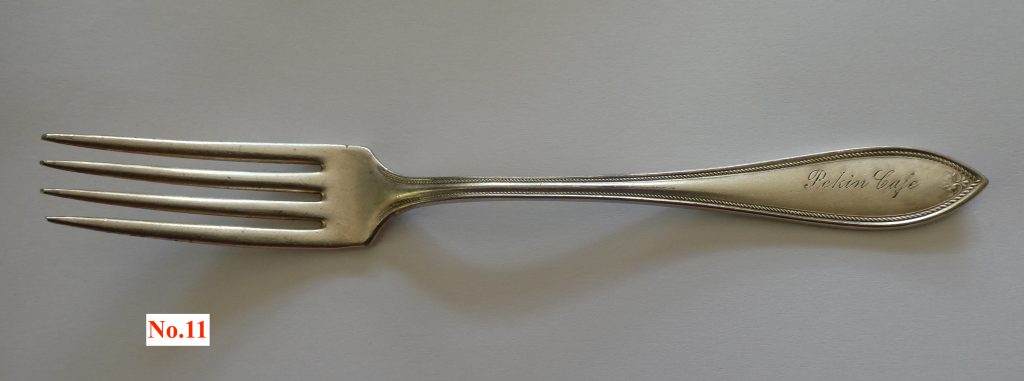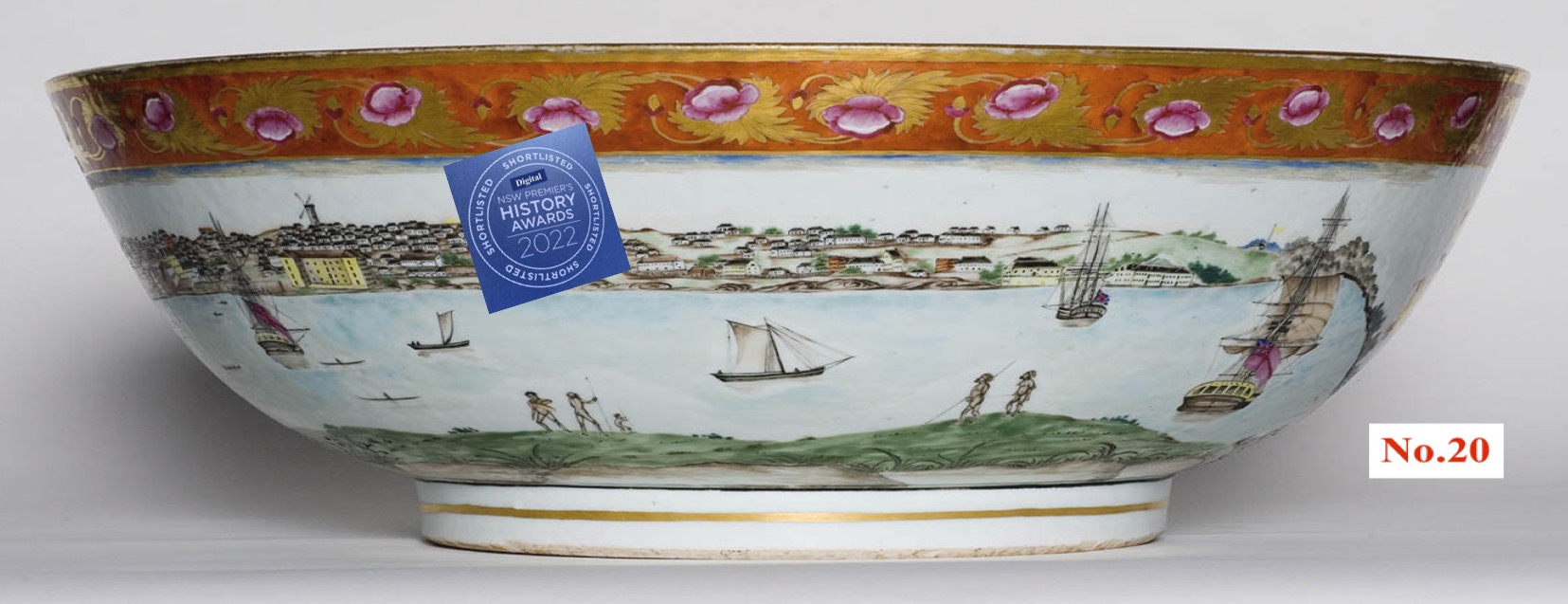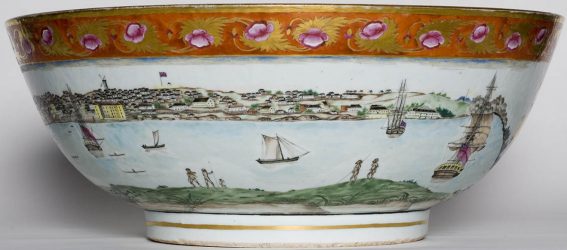
This humble utensil embodies a surprising number of historical links. These include links to generations of Chinese Australian families and businesses, as well as Australian literature, religion and even revolutionary politics. In functional origin it was part of the service of Melbourne’s Pekin Cafe, an up market eatery in early Federation Australia when that city was the nation’s capital. An owner at that time was Wong Shee Fan, the son of Wong Pang. Wong Pang had originally arrived in Australia during the gold rush and prospered until he owned both a deep shaft gold mine and various Melbourne businesses, including – perhaps – a share of the Pekin Cafe.
The fork itself is now in the possession of the Mar family of Sydney to where it was carried by Bonnie Shee Ping when she moved to that city from Melbourne before marrying Raymond Mar in 1954. The fork was a memento of her childhood where she remembers her mother Louise Ellen Sam working at the Pekin Cafe and cleaning such utensils as the souvenired fork. It is this Shee Ping connection that brings the fork into contact with a lost novel of Australian literature as well as revolutionary politics and Christian missionary work within the Australian Chinese community.
For Bonnie Shee Ping, mother of a large brood of the Sydney based Mar family, was the daughter of Louise Ellen Sam and Wong Shee Ping. Wong Shee Ping was sadly the father Bonnie never knew and the grandfather the Mar family re-discovered only as the result of recent research that has also rediscovered his novel – The Poison of Polygamy – concerning the Chinese Australian experience. The Poison of Polygamy was written by Wong Shee Ping, brother of the manager of the Pekin Cafe and son of a gold digger and Melbourne businessman from the See Yap region of southern China.
The Poison of Polygamy was partly based on the family history of Bonnie’s father and was motivated in part by his modernising zeal for China, which included revolutionary intent and Christian missionary activity (see No.2). Written just before the 1911 revolution Wong Shee Ping was a leading member of the Chinese Nationalist Party (Kuomintang) as well as a Christian missionary, travelling as far as Perth in his efforts both religious and political.
The fork itself is a tangible reminder that commercial success in a variety of fields was a major element of the Chinese Australian experience as well as gold mining, market gardening and other occupations. It is also a reminder that these businesses were not operated in isolation from the wider community. Both Melbourne and Sydney had their Pekin Cafes and both were upmarket restaurants patronised by the general community of early 20thAustralia. Like Chinese Opera in Australia (see No.16), the whitewashing and forgetting of the prominent role of Chinese Australians in many aspects of life was just one outcome of the White Australia policy.

